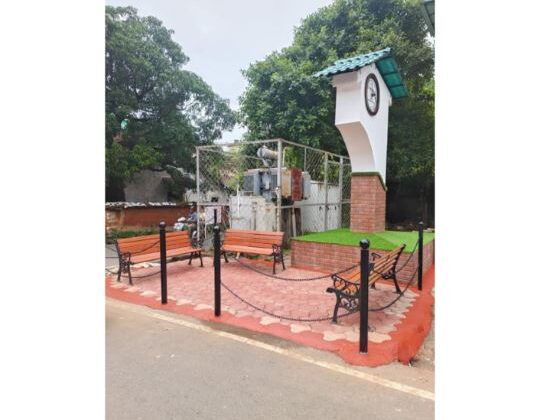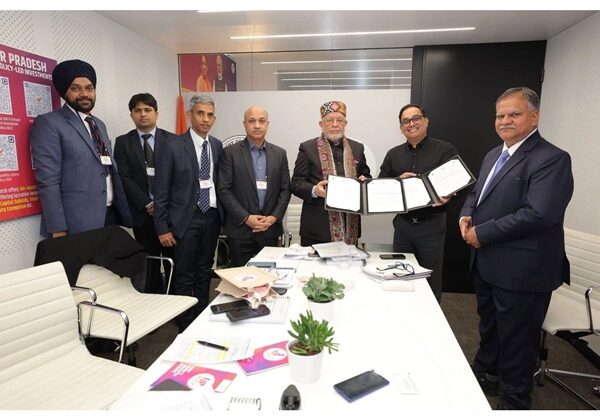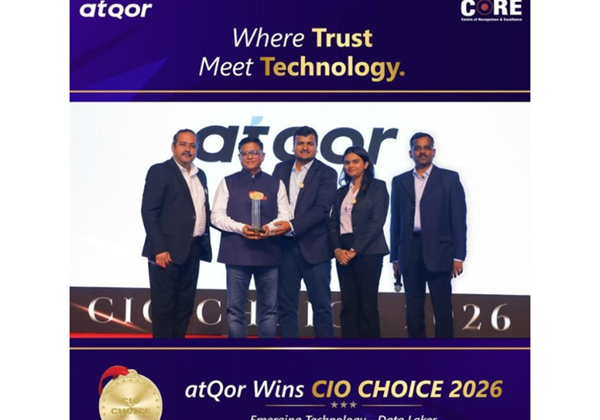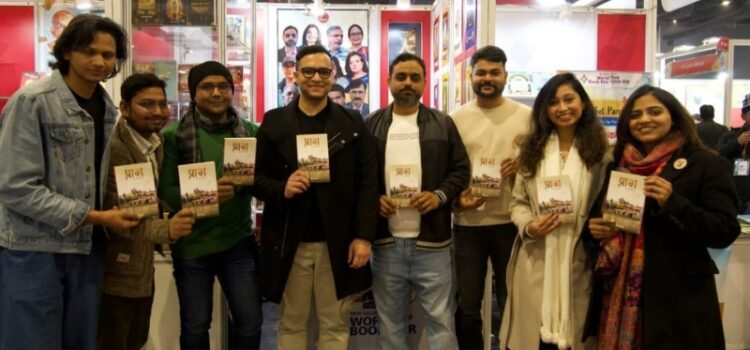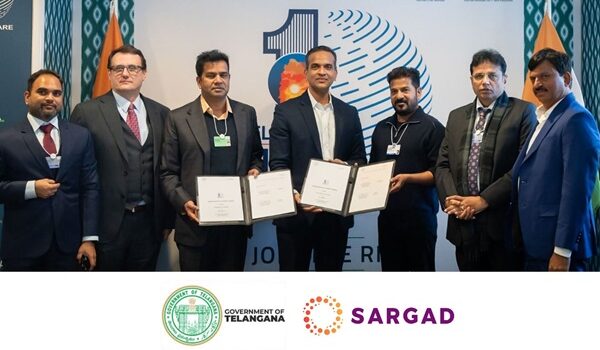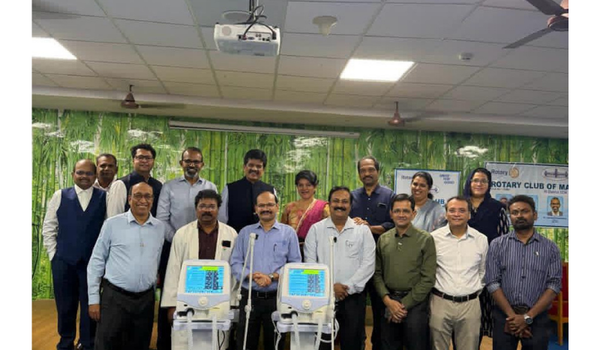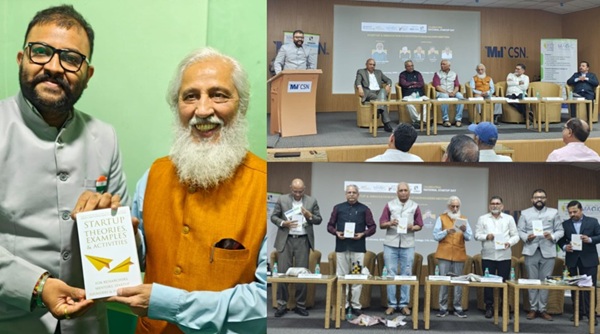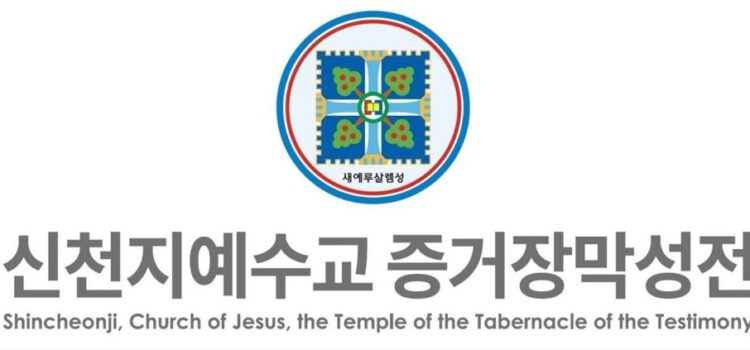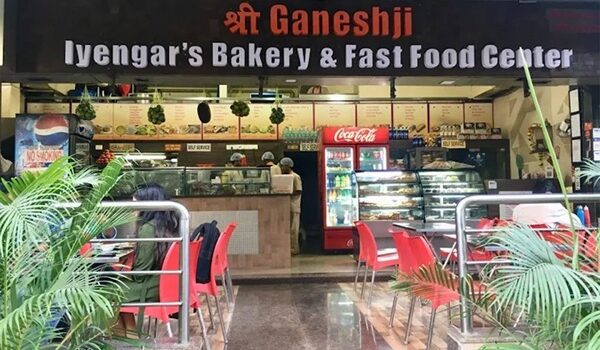New Delhi [India], January 19, 2026: VCCEdge, India’s leading private market research platform, and Candle Partners, one of the leading homegrown mid-market Investment Banks in India, have released the 17th edition of India’s Dealscape, an annual deals report capturing how India’s alternate investment ecosystem recalibrated through 2025.
Based on proprietary VCCEdge data tracked until November 2025, the report analyses trends across Private Equity (PE), Venture Capital (VC), Funds, Exits, Mergers & Acquisitions (M&A), and Equity Capital Markets (ECM), capturing a year marked by lower deal volumes but sharper capital concentration.
In addition to its data-driven analysis, the report features in-depth interviews with senior investment leaders, including:
- Sunish Sharma, Founder and Managing Partner, Kedara Capital
- Vishal Tulsyan, Founder & Executive Chairman, Motilal Oswal Alternates
- Nishit Garg, Partner, Asia Investment Team, RTP Global
These interviews offer perspectives on capital deployment, exit planning, and how investors are adapting strategies in a more disciplined private markets environment.
The report also features a dedicated thought leadership article by Mr. Navroz Mahudawala, Managing Director, Candle Partners, examining the key factors shaping M&A activity in family-managed businesses, with insights into both current market dynamics and emerging trends.
To get access to the report, click here.
Private Equity: Deal Volumes Fall 21%, Capital Concentrates in Larger Bets
Private equity investments in India moderated further in 2025, with deal volumes declining 21% year-on-year, even as disclosed deal value rose 14%, signalling a clear shift toward fewer, larger transactions. Capital increasingly concentrated behind later-stage and pre-IPO companies, while Angel and Seed investments fell to 55% of total deal volumes, down sharply from recent years, reflecting tighter scrutiny around validation and profitability.
B2B companies accounted for over 53% of PE deal volumes in 2025, up from 46% in 2023, reinforcing investor preference for scalable and sustainable business models.
“What we are seeing is not a retreat from private markets, but a recalibration,” said Anitesh Dharam, Business Head, VCCEdge. “Capital in 2025 has become more selective, backing fewer opportunities but with stronger conviction, as investors prioritise durability and exit visibility over rapid deployment.”
Sector-wise, Information Technology remained the largest contributor to PE deal volumes in 2025, even as overall activity moderated. Healthcare and Consumer Discretionary saw a pronounced decline in deal volumes compared to 2024, reflecting tighter underwriting and greater focus on profitability and cash flows.
At a thematic level, the report highlights a clear shift within India’s new-age sectors. FinTech, HealthTech and MediaTech recorded steep declines in deal volumes, visible across themes.
Across the top three themes, funding activity softened from 2024 to 2025 while business model mixes largely remained unchanged. Retail/Ecommerce continued to be overwhelmingly B2C-led, FinTech retained its B2B skew despite lower volumes, and HealthTech saw the sharpest, broad-based contraction across B2B, B2C and hybrid models.
Venture Capital: Early-Stage Activity Remains Subdued
Venture capital investments remained cautious through 2025, with early-stage deal volumes staying under pressure. Series A volumes fell 21% and Series B 16%, while later rounds showed promise. Series C rose and Series D increased 39% and 71%, but off a low base as investors focused on companies with established revenues and longer operating histories, reinforcing the broader shift toward disciplined capital deployment.
In Value terms, Series E+ value dropped 47%, while Series A and B values softened in 2025.
PE Funds: Fewer Launches, Capital Raising Tightens
Private equity fund activity reflected the broader tightening in capital supply during 2025. The number of PE funds launched declined 37% year-on-year, while total targeted capital fell 6%, pointing to a more cautious fund formation environment.
The decline was sharper in VC Funds, with 62% decline in fund launches compared to 2024.
Fundraising outcomes were similarly selective. The number of PE funds that raised capital declined 25% in 2025, while the amount raised dropped 56%, underscoring heightened LP scrutiny and longer capital-raising cycles. Smaller funds continued to dominate launches, even as large-ticket fund formations remained limited, reinforcing a preference for proven strategies and managers.
VC fundraising followed a similar trajectory, with the number of VC funds raising capital falling 50% in 2025, reflecting sustained pressure on early-stage capital formation.
PE Exits: Exit Volumes Hit a Five-Year Low
Private equity exits declined to a five-year low by volume in 2025, reflecting valuation challenges and extended exit timelines. Exit value, however, remained broadly stable, indicating a continued focus on larger, selective monetisation events.
Open Market exits remained the dominant exit route by volume, even as activity slowed from 2024 levels. Public Offering (IPO) and Secondary Sale routes posted volume growth of 50% and 26% albeit on a lower base.
While Exit Activity declined during the five-year period, partial exits increased their share of total exits from 33% in 2021 to 43% in 2024, underscoring the growing use of staggered exit strategies by investors.
In 2025, Information Technology and Healthcare were the top sectors by PE exit volume, together accounting for nearly half of all deals, while Industrials stood out on value.
M&A Rebounds as Strategic Confidence Returns
India’s M&A market recorded a recovery in 2025, with deal volumes rising 22% year-on-year and deal value increasing 16%, signalling renewed confidence among corporates. Domestic transactions continued to dominate, accounting for nearly three-fourths of all M&A deals.
Healthcare led the M&A volume rebound in 2025 with an 82% YoY increase, even as PE funding into the sector remained tight, pointing to consolidation-led growth. On value, Financials (+51% YoY) and IT (+67% YoY) drove the upswing, alongside a sharp rise in Healthcare deal value (+68% YoY).
Equity Capital Markets Cool After a Record 2024
After a record-setting 2024, India’s equity capital markets entered a phase of recalibration in 2025. ECM deal volumes declined 31%, while deal value fell 38%, reflecting more selective issuance conditions.
IPOs remained the dominant ECM instrument, accounting for over 70% of ECM deal volumes, even as issuance became more tightly priced. $100 million-plus IPOs contributed over 80% of total IPO value, underscoring growing selectivity in public markets.
A Maturing Market, Not a Retreat
Taken together, India’s Dealscape 2025 highlights a private markets ecosystem that is structurally maturing. Lower deal volumes, fewer exits and tighter fundraising reflect a shift toward quality, patience and realistic exit planning, as selectivity — rather than speed — defines the current investment cycle.
About Candle Partners
Founded in 2010, Candle Partners is recognised as one of the leading home grown mid-market Investment Banks in India (with typical deal sizes in the Rs 100-500 crore bracket). Since its inception, Candle has achieved closure of 55+ transactions with key focus being sell side M&A (i.e. representing several family managed businesses in exiting / getting a strategic partner on board). The firm advises companies on fund raises, strategic acquisitions, divestments and majority stake transactions. In 2025, it acted as sole financial advisor for Harsoria Healthcare’s fund raise from Tata Capital, Radhesham Wellpack’s majority stake sale to JK Paper, and Thomas Assessments India’s acquisition by CIEL HR Services. Candle Partners has a 9-member team based in Mumbai, with the majority of team members bringing a wealth of IB & Big-4 experience.
Website: https://candleadvisors.com/
LinkedIn: https://in.linkedin.com/company/candle-advisors
About VCCEdge
VCCEdge is India’s premier financial research platform providing comprehensive data and insights across Private Equity, Venture Capital, M&A, Equity Capital Markets, and Funds. The platform supports deal origination, valuation, due diligence, and competitive intelligence through detailed company profiles, transaction data, and investor tracking.
LinkedIn: https://www.linkedin.com/company/vccedge1
Experience VCCEdge with a personalised demo: www.vccedge.com
